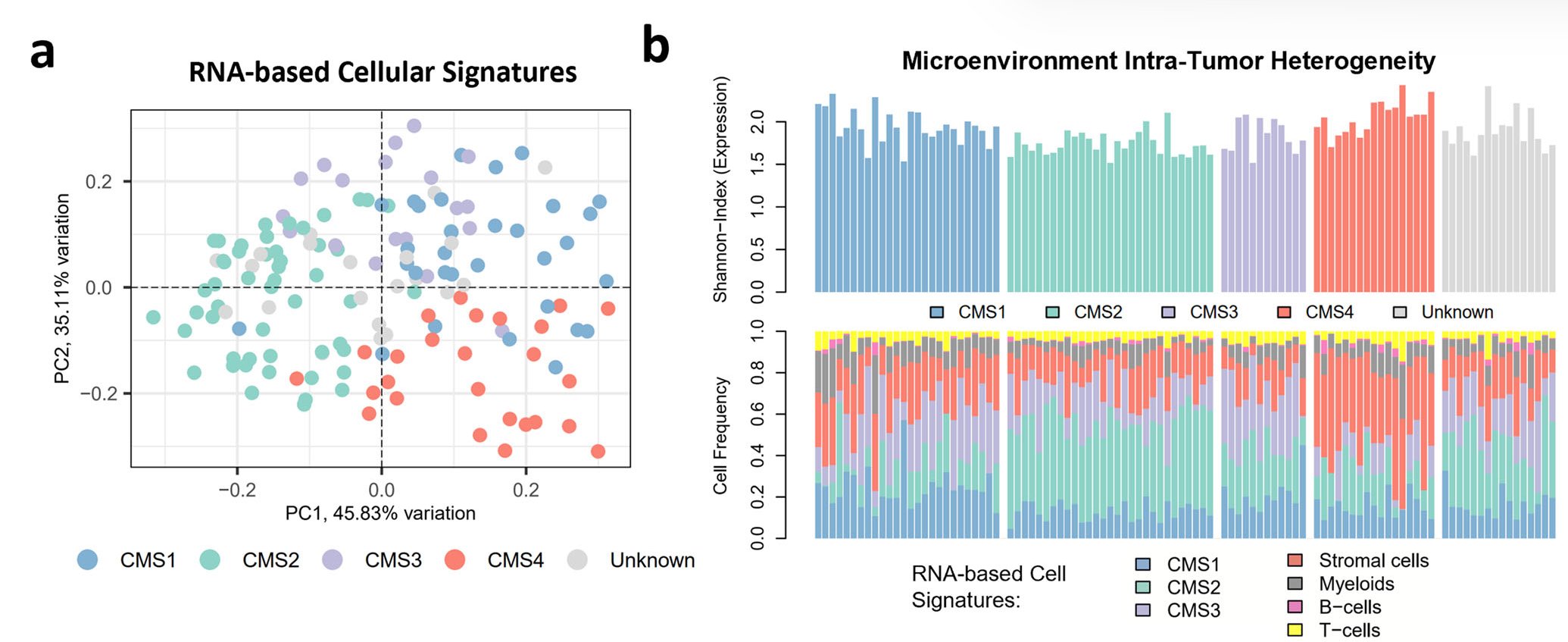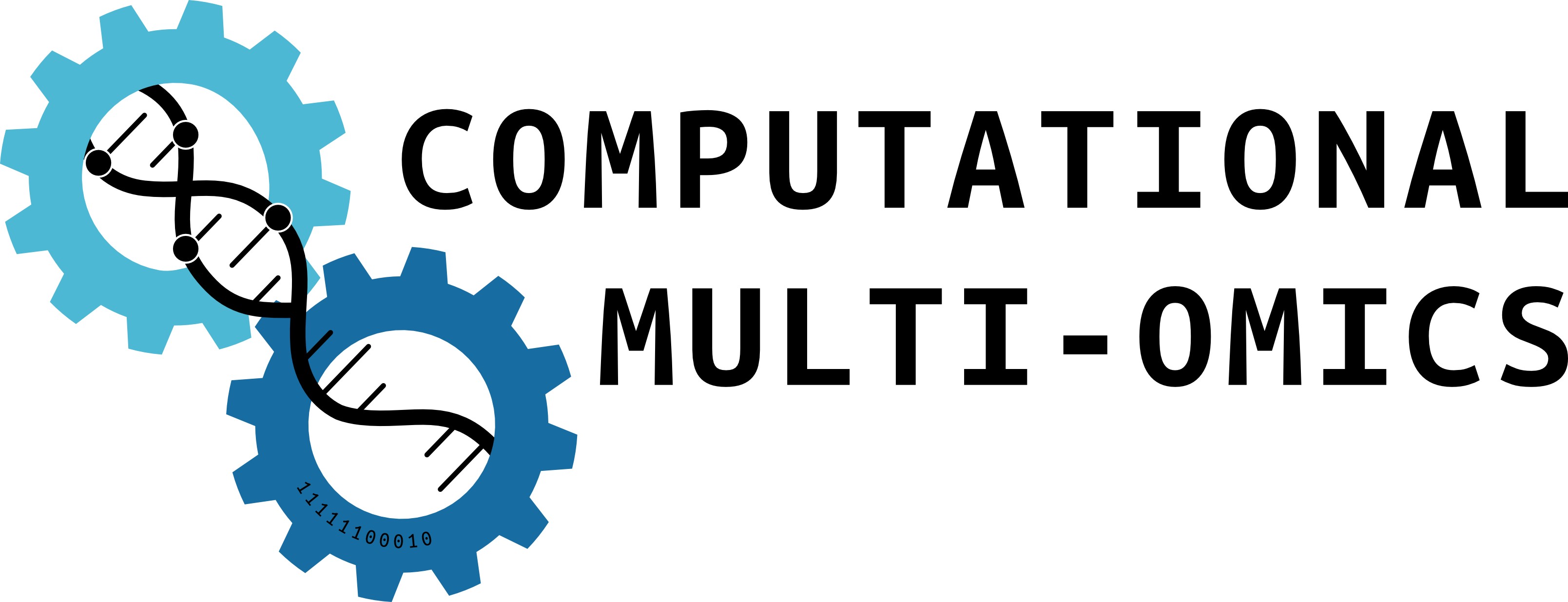Genetic and Microenvironmental heterogeneity impacts colorectal cancer progression

Colorectal cancer (CRC) is a highly diverse disease, where different genomic instability pathways shape genetic clonal diversity and tumor microenvironment. Although intra-tumor heterogeneity has been characterized in primary tumors, its origin and consequences in CRC outcome is not fully understood. Therefore, we assessed intra- and inter-tumor heterogeneity of a prospective cohort of 136 CRC samples. We demonstrate that CRC diversity is forged by asynchronous forms of molecular alterations, where mutational and chromosomal instability collectively boost CRC genetic and microenvironment intra-tumor heterogeneity. We were able to depict predictor signatures of cancer-related genes that can foresee heterogeneity levels across the different tumor consensus molecular subtypes (CMS) and primary tumor location. Finally, we show that high genetic and microenvironment heterogeneity are associated with lower metastatic potential, whereas late-emerging copy number variations favor metastasis development and polyclonal seeding. This study provides an exhaustive portrait of the interplay between genetic and microenvironment intra-tumor heterogeneity across CMS subtypes, depicting molecular events with predictive value of CRC progression and metastasis development (Sobral et al, 2022, Communications Biology).
